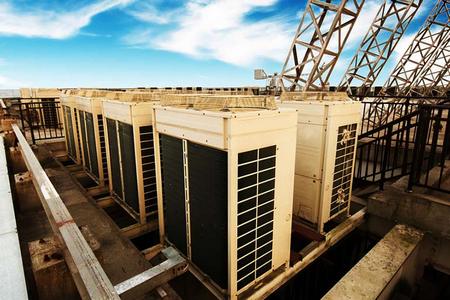F-gas review considers ban on R410A
June 01, 2021

A ban on the use of R410A in new stationary air conditioners and heat pumps is being considered under the review of the European F-gas regulation (517/2014).
The proposal to ban HFCs with a GWP of 750 or more in new stationary air conditioning and heat pump equipment poses potential questions for the future of VRF technology. This proposal would effectively ban R410A, leaving flammable R32 with its GWP of 677 as the only current possible commercial options, albeit limited to smaller VRF systems under current equipment charge limits.
The options to enforce the current F-gas regulation were presented in a briefing paper from the European Commission to stakeholders at a meeting last week. It includes proposals to combat the illegal trade in HFCs, training and certification for those using HFOs and “natural” refrigerants as well as plans for the alignment of the regulation with the Montreal Protocol. This might include additional phase down steps in 2034 and 2036.
The briefing paper also includes a prohibition on the use of HFCs with a GWP of 150 or more in stationary air conditioning and heat pump equipment below 12kW. This goes further than a report published by the EC in October last year which stated that it considered it technically possible to avoid F-gases today in new single split air conditioning with a cooling capacity below 7kW. This is likely to mean a move to flammable propane as has already been effectively deployed in portable air conditioners and dehumidifiers.
It should be noted that these are currently only proposals and no time-lines are indicated.
The briefing paper was produced by Ricardo, the UK global strategic engineering and environmental consultancy, and German environmental research institute’s Öko-Recherche and Öko-Institut. Based upon the report and on-going discussions with stakeholders, the European Commission intends to draft an evaluation and impact assessment for their proposal for the revision of the F-gas regulation which will be released towards the end of this year.
Refrigeration
While the use of recycled and reclaimed refrigerant is still at a relatively low level, there is a proposal to ban the use of virgin fluorinated gases for servicing and maintenance of refrigeration equipment with a charge size below 40 tonnes of CO2eq.
In the low temperature refrigeration sector, it is proposed to remove the exemption for stationary refrigeration below -50°C. It proposes a ban on virgin HFCs with a GWP of 2500 or more in a sector which has previously relied upon HFCs like R23 and R508, with their respective GWPs of 14,800, and 13,396.
Certification and training on alternatives
Having received wide backing from both industry and environmental groups, the EC is also proposing certification of technicians to include skills on the use of low-GWP HFO and “natural” refrigerant alternatives. In addition to practical training on all alternatives, the F-gas certification programme would also include training on energy efficiency issues.
Illegal refrigerant trade
There are a wide range of proposals offered to combat the significant trade in illegal refrigerants, one of the major concerns raised by industry and environmental groups. This could include minimum penalties for non-compliance and strengthening of customs surveillance, mandatory certification for importers of bulk HFCs and a mandatory registration for importers of all pre-charged products and equipment and changes to the T1 transit procedures.
Significantly, the briefing paper also proposes a mandatory certification for persons and undertakings selling bulk F-gases online and mandatory documentation and record keeping for downstream sales.
This could mirror recent German legislation which seeks to disrupt the illegal trade in HFC refrigerants by ensuring compliance throughout the supply chain. The current regulation only relates to the first placing on the market – the gas producers and importers – not the downstream dealers and users.


